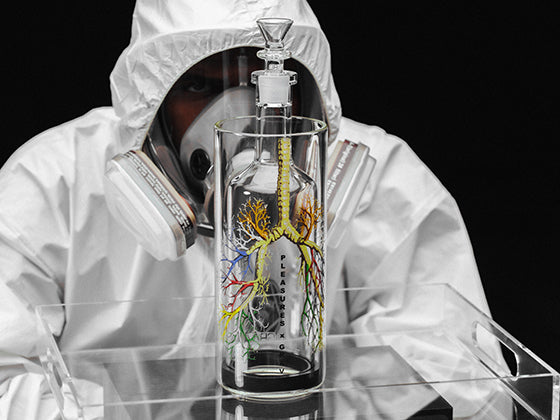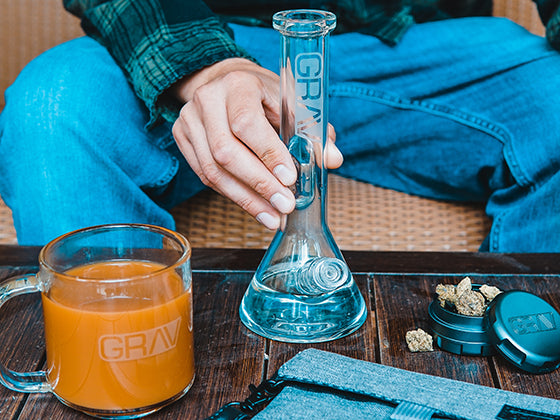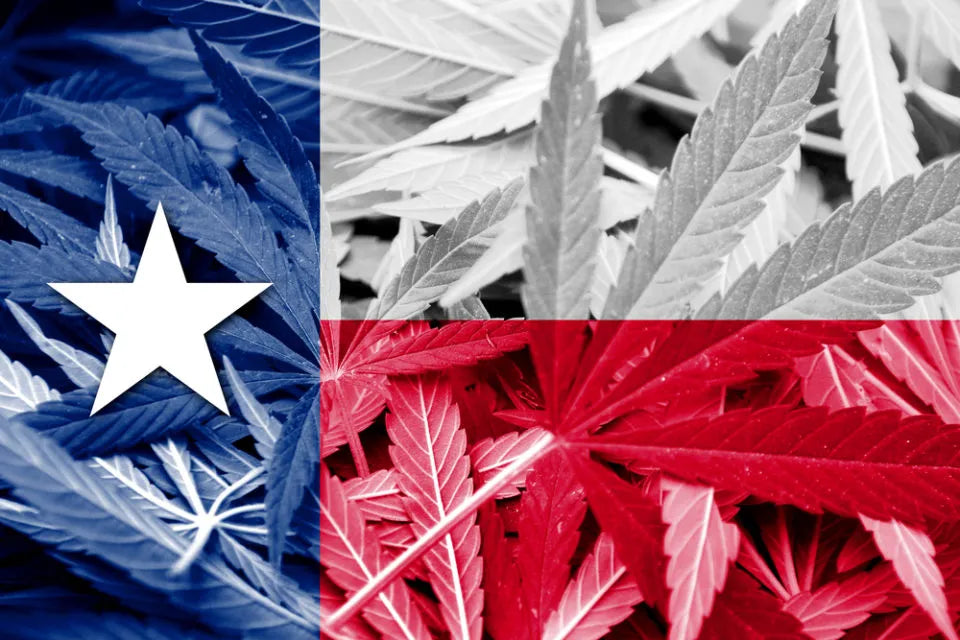What is The Real Reefer Madness?
If you examine the history of America's laws against weed, they all will lead back to one man named Harry Anslinger. He was the commissioner of the Federal Bureau of Narcotics in 1930. The bureau laid the groundwork for the current DEA and started the war on drugs. But before Anslinger started the anti-drug movement, other politicians had rallied against pot to try and control certain groups.

Hemp For Victory
The British government kept the first hemp crops in the 1600s. They encouraged colonial farmers to grow the crop for its use in creating fabric for sails, rope, and paper. In 1619 the harvest was in such demand that the British government required farmers to grow some hemp as part of their overall crop rotation.
Soon after the crop was popularized in North America, farmers began smoking it for its medicinal value. The THC content in these early hemp crops was minuscule but noticeable.
Over time the more potent plant forms were explicitly grown for medicinal purposes, and cannabis products could soon be found in early drug stores nationwide.
Everything Changes for Weed in 1910
In 1910 after the Mexican Revolution, a large group of Mexican immigrants came to America seeking work and a better life. Many found jobs as farm workers and also discovered the recreational and medicinal uses of the cannabis crop. As a result, they referred to the plant as marijuana.
Subsequently, campaigning against cannabis use has become a way to curb immigration. There was no real issue with cannabis, but politicians and other authorities used it as a vehicle for discrimination and racism.
Along the Gulf Coast, African Americans and West Indian immigrants were demonized as criminals and deviants because of their alleged addiction to weed. Further, inland lower-class white Americans, artists, musicians, and sex workers were all supposed pot addicts. When mainstream Christian Conservative Americans saw something they disapproved of, it was believed to be caused by the Marijuana Menace. But, of course, this was all bullshit.
California passed the first statewide cannabis prohibition law in 1913. The law was proposed by Henry Finger, a high-up member of the Pharmaceutical Board. He was a man with a terrible name and punchable face who pushed the prohibition of pot mainly to promote other drug sales and to demonize India Immigration which had spread to the west coast.

The War on Drugs Was Really a War on Immigration
Anslinger was appointed at the end of the prohibition era and stayed in power for 32 years, and it goes without saying he was a dick the entire time. At the start of his service, he dismissed any concerns over the public use of cannabis but eventually saw the economic and social threat it posed and changed his mind.
Anslinger passed the Marijuana Tax Act of 1937, which outlawed possessing or selling pot as part of his efforts to rid America of any and all drug use. But, unfortunately, Anslinger quickly began a campaign of misinformation about cannabis.
Anslinger treated cannabis with the intensity and divisiveness that we treat the opioid epidemic today. He popularized that young people were becoming hopelessly addicted drug fiends that would eventually waste away or become violent.

Perhaps the vilest propaganda Anslinger published was the story of Victor Licata, who had murdered his entire family with an ax while high on cannabis. This was obviously not true, and it was discovered years later that Licata had a history of mental illness and violence.
Anslinger hired an entire panel of scientists to evaluate the dangers of cannabis, and only one agreed that it was harmful. Then, he took this one report that agreed with his opinion and presented it to the public as fact in a terrifying example of manipulating public opinion.
The other component of Anslinger's strategy was just old-fashioned racism. He went after black jazz musicians and Latino workers, saying that they were the primary users of weed and that they were creating "Satanic" music, all thanks to the influence of pot.
Billie Holiday became a target of Anslinger and was labeled a pot addict, but in reality, she struggled with heroin addiction. As a result, Holiday was forced to stop performing and was harassed by law enforcement until her death.
The word "marijuana" itself was weaponized to the detriment of the Latino people. The pot was referred to by its proper name, cannabis, for decades until Anslinger popularized the term marihuana, a Spanish word more likely to be associated with Mexicans.
Immigrant workers in the hemp trade were seen as threats to American farmers. In addition, hemp was threatening to upend other prevalent textiles because of its enormous usefulness as a material for rope and clothing.
Anslinger then moved to pass the Marijuana Tax Act, which prevented the growing, possession, and sale of cannabis by requiring a license that no one could afford to purchase. During his testimony, Anslinger demonized both cannabis and those that used it. He claimed that it destroyed the culture of America and corrupted the minds of those who smoked it.
While cannabis has been normalized over the last few decades, the stigma that Anslinger created around cannabis still looms like a specter that prevents true cannabis freedoms from existing.
The 1930s: Anti-Cannabis Propaganda
The black and white propaganda film Reefer Madness was initially titled "Tell Your Children." The film involves a group of high school students engaged in the lured world of marijuana. The film escalates from smoking a joint quickly to ludicrous situations and behaviors, all apparently caused by smoking just one joint of weed.
According to the film, even the slightest hit of pot can lead to manslaughter, rape, hallucinations, and drowning. Since the film's release, it has been parodied and targeted for comedy countless times. The sheer lunacy of thinking that weed could cause the film's events is unthinkable and entirely unplausible to the point of laughter.
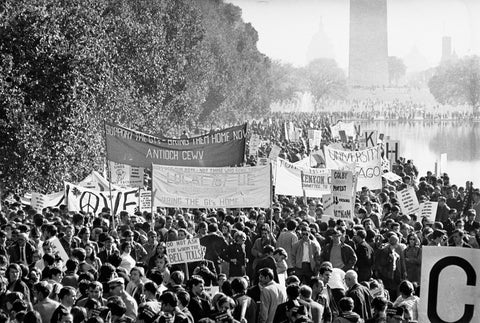
The Revolt of the '60s and '70s
Marijuana saw a resurgence during the rebellious years that pushed against established authority, the Vietnam war, and conservative thinking. The anti-war movement saw a great swath of young white middle-class Americans embracing the daily use of pot and even psychedelics to tune in, turn on, and drop out.
Along with this acceptance in the counterculture came a push from the government to research the effects of cannabis. Studies were commissioned by Presidents John Kennedy and Lyndon Johnson and found that cannabis did not cause violence or lead to more problematic drugs.
But then Richard Nixon came along to ruin everything again. In 1970 Nixon passed the Controlled Substances Act and scheduled cannabis alongside heroin and LSD. Pot was viewed by the government as having no medical benefit.
Nixon's War
The main inspiration for Nixon's drug war was to quash the voices of those rallying against his war and conservative values. The counterculture movement was catching fire, and more and more everyday young people were turning towards philosophy, art, and community more than government, law, and the economy. Nixon hated that, so he schemed to throw everyone in prison that disagreed.
Nixon was even told by his own panel of scientists and researchers that he had made a mistake with marijuana policy. The Shafer Commission, which was appointed by Nixon, determined that a small amount of weed should be decriminalized and stated that the subject of cannabis use had been severely misunderstood by the government.

They concluded that cannabis posed no widespread threat to the public and that social measures would be best to curb drug use instead of criminal prosecution.
Nixon unsurprisingly rejected the commission's findings and forged ahead with his war on drugs. In the years to follow, the Drug Enforcement Agency would be created to perpetuate Nixon's anti-drug agenda.
The report struck a chord with other organizations aware of its findings. As a result, in 1973, the National Organization for the Reform of Marijuana Laws helped to pass the first decriminalization statute in Oregon. Over the next decade, more states would follow suit.
The Late 80's and the Drug Epidemic
Reagan came in the 80s and decided that what drug addicts needed was punishment instead of therapy. So in 1986, Reagan signed the Anti-Drug Abuse Act, which instituted minimum sentences for all drug-related crimes. America had been reeling from a wave of overdose deaths due to cocaine use, but once again, cannabis law became an easy target and a tool to control parts of the population.

The main reason America's prisons filled up and stayed filled after the 1980s was due to stricter drug laws and mandatory incarceration.
Perhaps the most heartless and unnecessary part of these increased penalties was the inaction of the "three strikes" policy, which required a life sentence for repeat drug offenders.
Between the late 80s and mid-2000s, the prison population in America soared from hundreds of thousands to nearly 2 million, many of which are serving multi-year sentences for non-violent crimes.
The True Reefer Madness
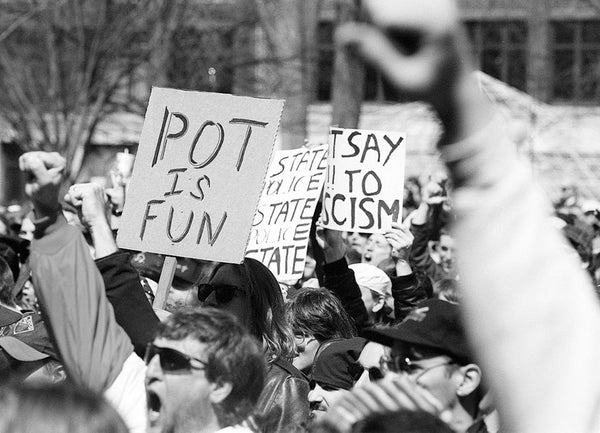
The reality of the state of cannabis use and law in America is that it is widely accepted, used, and even championed by the public and many state entities. Smoking weed has been normalized in our modern culture and its common to encounter everyday people who roll joints and use bongs.
However, that enthusiasm and cultural shift are the opposite for the federal government, which has since the 1920s demonized and criminalized the use of pot to marginalize and weaken certain groups and movements.
Cannabis and cannabis users do not and have not hurt the fabric of American culture. But our federal government has gone down the path of actual Reefer Madness, which is the mind-boggling use of cannabis propaganda and other lies to try and mislead the public. True Reefer Madness is not admitting that cannabis can be a force of good, a source of joy, and a tool for wellness.




